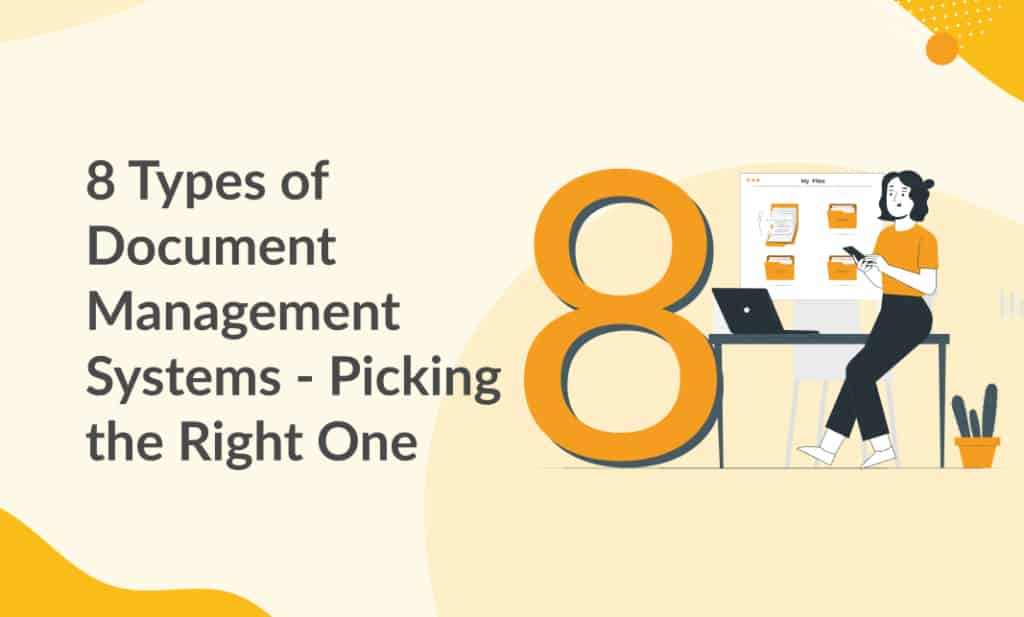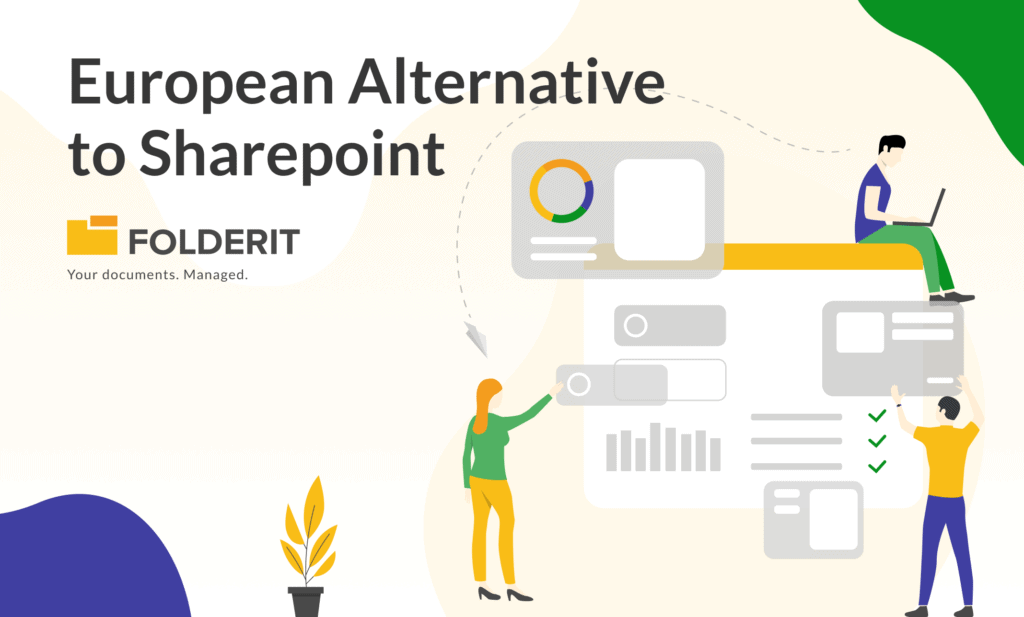Managing documents is very important in general EdTech, especially with the increased global push for sustainability. Additionally, schools and colleges create many documents every day, like student records, papers, research data, and teaching materials. A good Document Management System (DMS) helps keep things organized, secure, and makes it easier to work together.
Key Elements of a DMS in EdTech
Document Digitalization and Automation
Document Digitalization
Digitalizing documents is an important step in improving document management. By turning paper documents into digital formats, schools can easily store, find, and share information. This change reduces the need for physical storage and makes operations more efficient. For example, universities can speed up the admissions process by digitizing application forms, so multiple staff members can access them at the same time.
Workflow Management
Workflow automation is another key part of a good DMS. Automated workflows can handle repetitive tasks like routing documents for approval, sending notifications, and managing storage. This saves time and reduces mistakes. For example, automated workflows can manage the submission and approval process for financial aid applications, making sure all steps are done quickly and correctly.
Collaboration Tools
Collaboration is very important in schools. A DMS with collaboration tools lets multiple users view, edit, and comment on documents at the same time. This is essential for project-based learning and tasks that need input from different people. Tools like Microsoft SharePoint and Google Workspace for Education are popular in EdTech because they have strong collaboration features.
Benefits of Implementing a DMS
Enhancing Operational Efficiency
Streamlined Processes
Using a DMS makes many administrative and academic tasks easier. Digitalizing and automating documents saves time and effort, letting staff focus on more important tasks. For example, automating the scheduling and approval of faculty meetings can save a lot of time and resources.
Improved Access and Retrieval
A well-organized DMS makes it easier to find and access documents. Advanced search features, like optical character recognition (OCR), let users quickly find specific documents by searching for keywords or phrases. This is especially helpful for large schools that manage many records and documents.
Improving Data Security and Compliance
Advanced Security Measures
Data security is crucial for schools because they handle sensitive information like student records, financial data, and research materials. A DMS with advanced security features, like encryption and access controls, ensures that only authorized people can access certain documents. For example, Folderit uses AES 256-bit encryption and offers customizable user permissions to enhance security and flexibility.
Compliance with Regulations
Schools must follow data protection laws like the Family Educational Rights and Privacy Act (FERPA) in the U.S. and the General Data Protection Regulation (GDPR) in Europe. A DMS that supports these laws with automated retention policies and detailed audit trails is very helpful. These features ensure documents are kept for the required times and show who accessed or changed them, providing transparency.
Supporting Remote and Hybrid Learning
Cloud Integration
With remote and hybrid learning becoming more common, being able to access documents from anywhere is crucial. Cloud-based DMS solutions provide this flexibility, letting teachers and students access files from any device with internet. This supports remote learning and keeps educational activities going during unexpected events like school closures. For example, cloud integration makes it easy to share lesson plans, assignments, and other resources for effective distance learning.
Mobile Accessibility
Mobile-friendly DMS platforms let you access and manage documents on smartphones and tablets. This is very useful for educators and administrators who need to work on the go. Tools like Google Workspace for Education show how mobile access can improve document management and productivity. With mobile access, teachers can review student work, give feedback, and collaborate with colleagues from anywhere, supporting a flexible and dynamic learning environment.
Advanced Features to look for in EdTech DMS’s
Intelligent Archiving
A DMS should have advanced archiving features to manage the lifecycle of documents. Folderit’s new “Archive to Folder” feature lets users automatically move documents to an archive folder after a set time. This keeps active storage uncluttered and ensures important documents are saved for future use. This is especially useful for managing student records, administrative documents, and research data, keeping all essential information accessible and organized.
Powerful Search Functions (OCR)
As the number of documents grows, finding specific files can be hard. A DMS with powerful search features, like optical character recognition (OCR) for scanned documents, helps you find documents quickly. This is essential for schools that handle many records, like student transcripts and faculty research papers. Advanced search functions let users search for documents using keywords, phrases, or metadata. This reduces the time spent on finding documents and improves overall efficiency.
Folderit’s Unique Offerings
Folderit stands out with its custom metadata and file linking features. Custom metadata lets schools add specific info to documents, like tags, notes, dates, and due dates. This helps categorize documents accurately and makes them easy to search. For example, teachers can tag student assignments with course names, submission dates, and grades, making them easier to manage and find.
File linking in particular improves document management in schools. It lets users link related documents, like lesson plans, student projects, and evaluation forms. By linking these files, teachers can quickly access all related documents from one place, making their work easier and improving productivity.
Conclusion
Using a Document Management System (DMS) in the EdTech sector is essential for improving efficiency, ensuring data security, and following regulations. Features like digitalization, workflow automation, strong security, cloud integration, and advanced archiving make a DMS very valuable for schools.
Folderit’s DMS offers solutions designed for the needs of the EdTech sector. It provides tools that improve collaboration, security, and document management efficiency. By using these features, schools can make their document processes smoother, enhance teamwork, and ensure data security and compliance, creating a better and safer educational environment.



